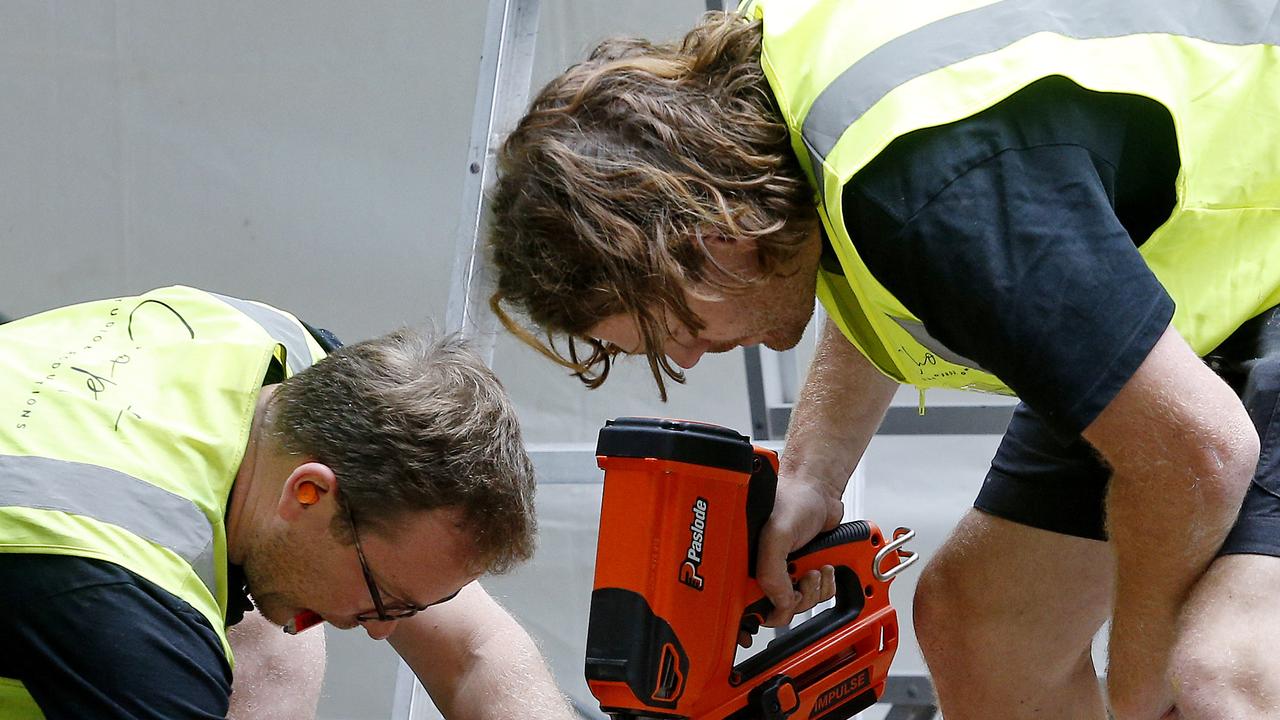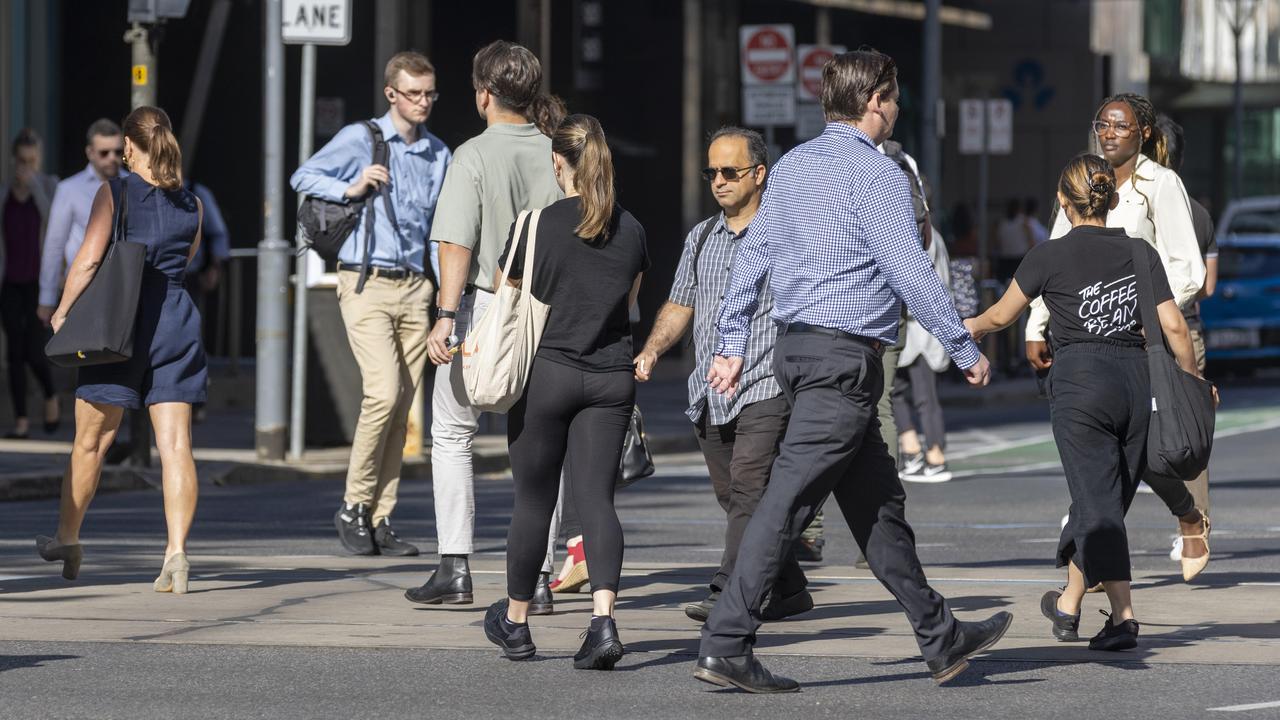How Gen Y is changing the future of work
YOU know how Gen Y is lazy and self-entitled? Yeah. About that. It turns out we may have misjudged our young people.
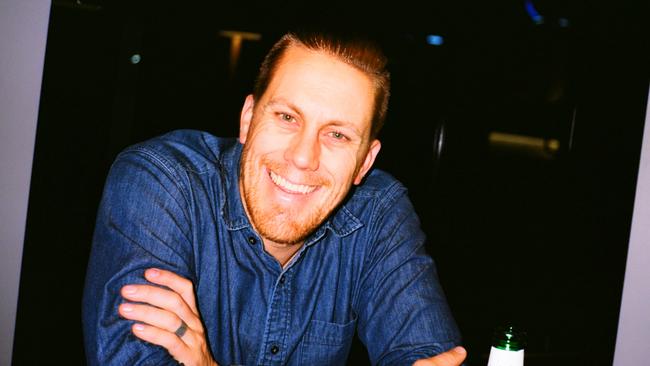
Careers
Don't miss out on the headlines from Careers. Followed categories will be added to My News.
GEN Y’s work ethic and positive compliments don’t exactly go hand-in-hand.
We’ve become a generation of workers nearly synonymous with self-entitlement, lacking motivation, and being generally work-shy, if you ask many employers.
But a new study has turned that on its head, showing how Generation Y’s unique approach to work and careers is seeing young workers seize control of their own career direction, becoming more ambitious, financially stable and innovative than generations of workers before them.
According to the Life Done Better Report, published today by Latitude Financial Services, more than three quarters of Gen Y workers (78 per cent) desire control over their own career direction, and most of them (64 per cent) want autonomy. What’s noteworthy is that they’re achieving both those things, and it’s not only these ambitious youngsters but the employers that take them on and encourage them who are reaping the benefits.
Through committing to side projects and valuing experiences over promotions, young employees are changing the future of work.
The study of 1000 workers aged 25 to 39 conducted by CoreData shows this group was one who wanted to impose their preferences on the workplace.
A large number of respondents were comfortable juggling many roles (82.4 per cent), and more than six in 10 (62.4 per cent) preferred not to rely on just one source of income.
It found seven in 10 respondents were willing to take financial risks and back themselves to achieve their career goals, and most (66.3 per cent) felt unable to imagine having only one job or career.
According to futurist Chris Riddell, the changes the forward-thinking generation impose on the workplace over the next three years is set to define the next 100 years of humanity — or at least the modern workplace.

Jay Morgan is one of these ambitious young workers taking his future into his own hands while his bosses reap the benefits.
Just over a decade into a successful career in advertising, the Sydney creative director decided he wanted some control over his income, and felt he should futureproof his career by starting a business on the side.
The coffee-lover and hobby roaster thought a logical thing to do was to figure out a way to make money, and gain valuable career skills through his passion, so set up his business Scribe Coffee — establishing an online store in just one night.
“My career in the last 15 years has been advertising starting out as a designer, moving into art direction, creative direction, and really the last 10 years has been leading teams and coming up with ideas,” the 36-year-old tells news.com.au.
“Among all of that you hit moments where you think I’d like to run my own thing or at least have a go, and then the next question is what will it be.”
Mr Morgan said his hobby had got to the point where it was not only taking up a lot of his time but also sucking a fair bit of his cash, and thought he may as well figure out a way to make it more worthwhile.
“I thought, I can do this, I’m in advertising,” he said.
“I set myself the challenge of creating a brand, setting up an online shop that night, and within three hours I had everything up and running online.”
The coffee-lover had been spending hundreds of dollars ordering fresh beans from around the world and roasting them in his home so that he could consume the coffee at the optimum time — within three weeks of roasting — rather than the settle for the stuff that comes after shipping delays. He thought, other people must want this too, and so figured out a way to deliver and make money from it, while picking up a few skills along the way.
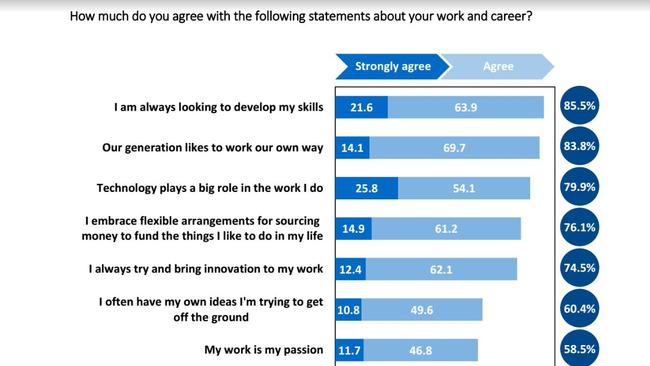
He’s now making enough to pay off his the equipment he’s invested in and the overheads of running the business, while generating a comparative income of about five per cent of what he makes in his fulltime job.
Although his side hustle takes up a significant amount of time on Jay’s nights and weekends, he believes for generations before him, or even a few years ago, a project like this just wouldn’t have been manageable.
“I guess because it’s an online business, it’s a fairly light touch during work hours so I don’t let it interfere. Orders come in, within five minutes at lunchtime I process them on my phone, I come home and pack them at night. I’ve got that whole process pretty streamlined,” he said.
“The spin-off benefits of doing this, on a small scale, have really helped me day to day and my employer’s supportive too because it adds experience.
“I’ve learnt a lot about consumers and it’s actually a plus that I have experience with my own business. It’s something that we tell clients about, rather than an annoyance to the bosses that I’m devoting time elsewhere.”
Like many of his peers, Jay is not only using his hobby to make some cash on the side, but to futureproof his career.
“I guess ultimately with enough success and enough time spent Scribe, I’d love to turn it into a fulltime thing or at least a partial income where I might be able to have a few more options as far as the future goes,” he said.
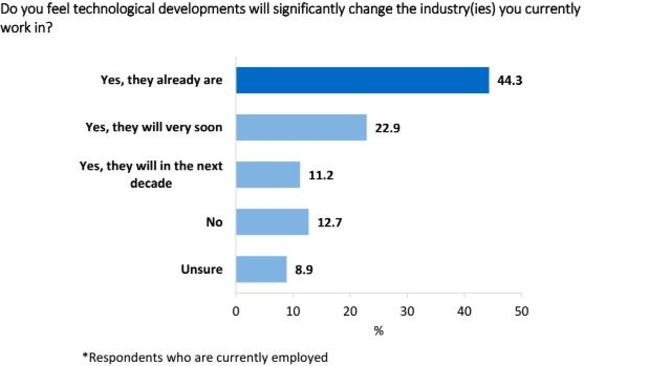
Mr Riddell, who has analysed the Life Done Better Report data and has studied young employees’ workplace behaviours says workers like Jay are making employers reconsider stereotypes around younger workers.
“I think the big thing, historically, or quite a lot in the media, we see Gen Y as typically painted as a self-entitled, uncommitted group, particularly when it comes to their careers,” the futurist told news.com.au.
“This is a narrative we’ve been seeing for some time now and actually Gen Y have discovered this is really a big misunderstanding. They’re very much this go-getter generation. They’ve come from this world of big old established organisations, and are going, hang on, we can’t rely on that.”
Mr Riddell said the adaptability that young workers have been forced to acclimatise to in a post-GFC world has given them a huge advantage in the way they manage their futures, and employers are having to take note.
“Earning good money, passion for work, and a fun work environment are their top priorities, and they don’t just not mind, but value, changing jobs a lot and shifting careers. This is very different to past generations who have valued security and moving up in the organisation that they’re employed in,” he said.
“The data that we’ve got showed a really big group of people who are really preparing themselves for a different future by having multiple jobs, multiple careers. Gen Y recognises now that the one career, one job thing isn’t going to work.”

Mr Riddell says it’s not only employers who will have to acclimatise to future workers wanting more autonomy and flexibility in their jobs, but governments will have to adapt as well.
“The big challenge we’re seeing here from an income perspectives is that government have typically only had a look at people from a taxation perspective as having one income. Now we’re seeing businesses like Uber, airbnb, different ways of making money, and the challenge for governments is trying to keep up with this pace of change,” he said.
As well as changing the makeup of the workforce and developing innovative business models, Mr Riddell says this influential generation is also redefining success.
“We’ve always been told up until recently that you need to have a very determined set of skills in a particular area to have a good career and people with creative or broad skills have been pushed to the side,” he said.
“But going ahead, people who are creative and can quickly adapt, those are the ones that are really going to be able be the significant earners in the future. Start-ups and entrepreneurs, they’re not afraid of uncertainty. They’re not afraid of ambiguity and volatility. The reasons start-ups, Gen Y are doing so well is they don’t fear that.”
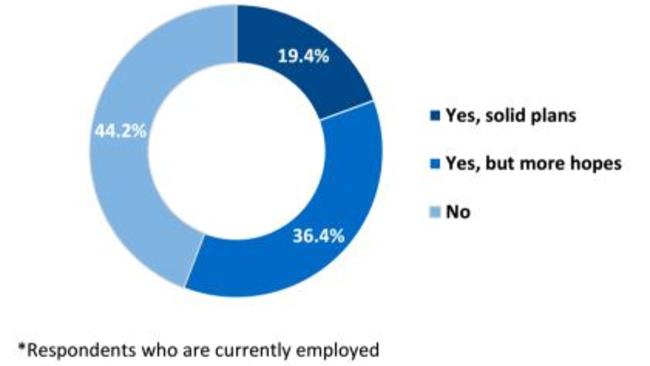
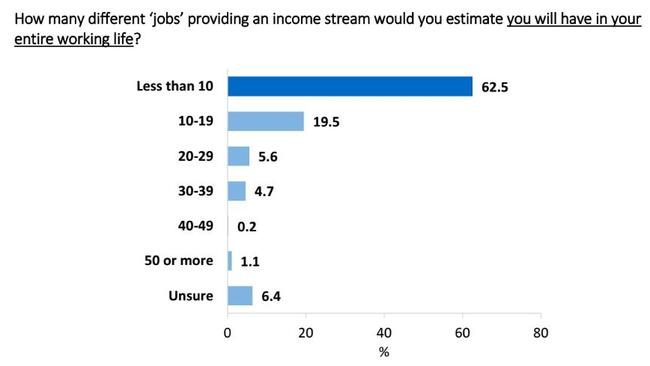
Mr Riddell said valuing experiences over assets stability will continue to change views on what it means to have made it.
“If we look at the Gen X, Baby Boomers, they define success as what I call having stuff. They might have DVDs on the shelf in their living room, they had nice houses and filled their houses with stuff and stuff was a definition of success. But Gen Y and Gen Z do not want stuff. They want experiences,” he said.
“The other thing that I find Gen Y are very keen on, they’re looking for ideas that will change the world. They’re not just looking for things that will make money. Sure they want to do that, but they’re looking ahead to, they’re looking at things that will make a difference to the world, and bring success to them personally as well.”
Ms Donna Pidduck, Latitude Financial Services Chief Marketing Officer, said the research showed Gen Y was leading the business world in an exciting new direction.
“This is a group of people who are preparing themselves for the future, a better future.”
Originally published as How Gen Y is changing the future of work


